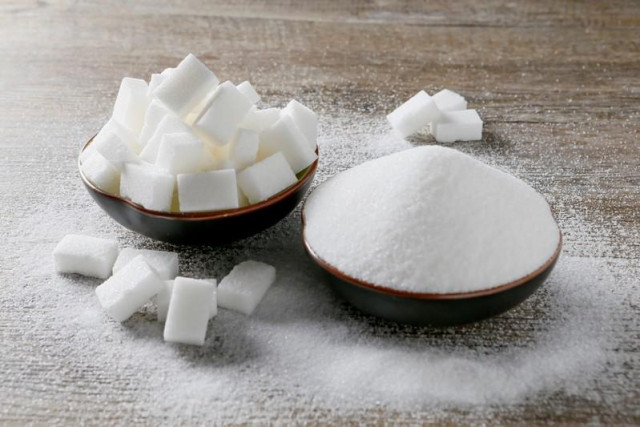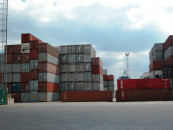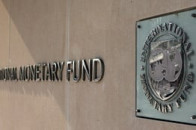A road map out of Pakistan's sugar conundrum
Govt should withdraw from commercial role like support price, export subsidy and quota

Reuters file photo of sugar
While I leave this to be judged as per the rule of law, I take this opportunity to highlight structural issues in the sugar sector. The sugar value chain has four main stakeholders – growers, industry, consumers and the government. The sector faces a major conundrum as farmers’ security, consumers’ welfare and industrial survival apply competing pressures on the policy.
The protection of farmers, for example, comes at the cost of survival of the industry and protection of the industry itself comes at the cost of consumer. This article proposes a way out of this conundrum.
Issues
First, the sugar market is distorted, which is manifested in under-pricing of water as input, support price offered to the growers, export subsidy and export quotas for mills, import barriers in the form of high customs duty, high level of sales tax and ban on entry of new sugar mills.
Second, the legal framework is archaic comprising the Sugarcane Act 1934, Sugar Product Control Order 1948, Sugar Factories Control Act 1950 and Control on Industries Establishment & Enlargement Ordinance 1963.
As a result, this becomes a highly controlled sector in which everything including licence, procurement of raw material, start and end of crushing season, entry to market and import or export is controlled by the government.
Third, the government earns more than the private sector in sugar sales. According to Pakistan Sugar Mills Association (PSMA), the government charges Rs15.20 per kg in the form of taxes at the current retail price of Rs83.59 whereas the mills, on average, earn Rs6 per kg.
Fourth, the price of sugarcane is determined by the weight and quantity and is not driven by the quality indicated through sucrose percentage. Furthermore, the entire value chain is driven by cost consideration and not the value through market.
Solutions
Broadly speaking, there seems to be two sets of recommendations to address the issues highlighted earlier.
One set may be referred to as “more government”, which includes strict enforcement of support price, timely payment to growers, closer inspection of sugar mills’ accounts, better quality of data, efficient use of Trading Corporation of Pakistan, more efficient role of institutions like the Sugar Research Board and agriculture price institution, and provincial cane commissioners.
This direction needs more capacity in the government, de-politicisation of the bureaucratic machinery and efficiency in decision-making at the top. It is understood that this approach will be supported by the government as well as large sections of growers’ lobbies. The sugar inquiry report also leans heavily towards this solution. However, the limitations to this approach are obvious.
Another set of recommendations may be referred to as “more market”. This solution includes an end to support price, rationalisation of water pricing, end to export quotas and export subsidy, open trade and open competition with no barriers to entry or exit from the market. This solution is recommended by the Competition Commission of Pakistan (CCP), the industry and many analysts.
However, this is challenged by the proponents of food security. This argument implies that once the government removes the floor price, the growers will stop or reduce sugarcane plantation, leading to shortages. That may have political ramifications including an increase in farm unemployment.
However, if this is associated with open trade and a buffer stock, the food security objective will not have to be compromised. The effect on farm unemployment needs closer examination due to availability of substitute crops.
Way forward
I support “more market” in this case. In the new road map, the government needs to minimise its footprint. It should eventually withdraw from any commercial role including support price, export subsidy/quota and other direct business operations as well as measures through extensive regulations and taxes in the sugar sector.
The role of the Economic Coordination Committee in granting permissions for import or export of sugar should be discontinued. All archaic laws (the Sugarcane Act 1934, Sugar Product Control Order 1948, Sugar Factories Control Act 1950 and Control on Industries Establishment & Enlargement Ordinance 1963) along with concomitant institutions need to be phased out and abolished.
The government may invest in strategic sugar reserves, which can be further complemented by more agile trade operations that should be liberalised instead of limiting them to the Trading Corporation of Pakistan only. The government can finance such operations, if needed, instead of directly managing it.
Mills should be at liberty to export their surplus stock. Similarly, private parties should be allowed to import sugar without seeking any prior approval. Necessary measures to monitor hoarding of stock can be taken to ensure the flow of the commodity without controlling prices.
In the long run, price volatility is an important signal for market participants and should not be suppressed. We need open trade, competition and price rationalisation.
The writer is the founder of independent think tank PRIME
Published in The Express Tribune, June 22nd, 2020.
Like Business on Facebook, follow @TribuneBiz on Twitter to stay informed and join in the conversation.



















COMMENTS
Comments are moderated and generally will be posted if they are on-topic and not abusive.
For more information, please see our Comments FAQ